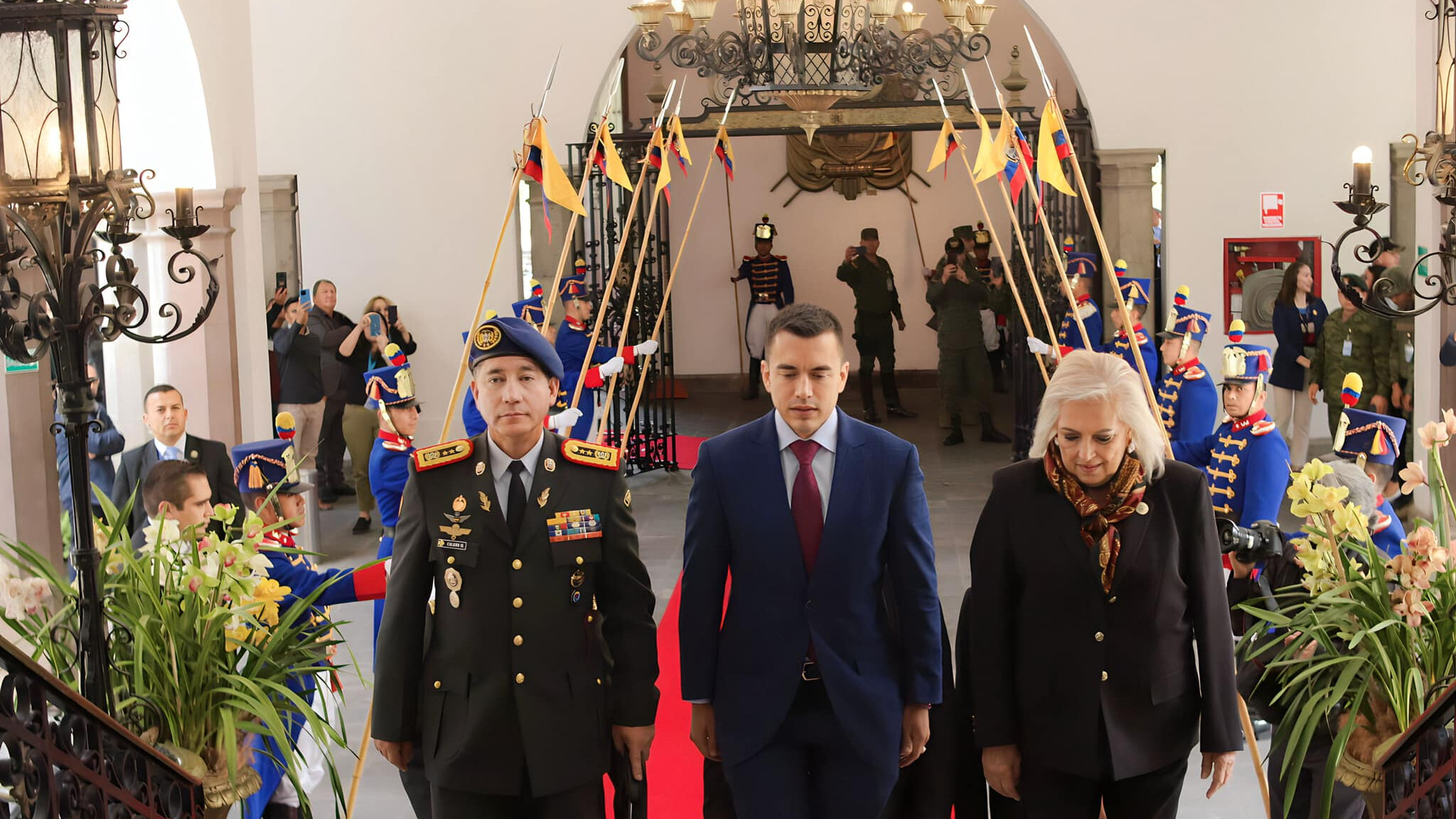The challenges facing Ecuador’s new president, Daniel Noboa
A distant outsider at the start of the campaign, Daniel Noboa came from nowhere to win Ecuador's presidential election. Yet his celebrations will be short-lived, as he has a short time to start fixing Ecuador's long list of problems...

On Sunday Ecuadorians went to the ballot box and picked Daniel Noboa as their new president. The election was caused by the premature termination of Guillermo Lasso’s mandate, which means Noboa will only serve 16 months as Ecuador’s leader.
His victory, draws parallels with Guillermo Lasso’s own triumph two years ago - a wealthy, market-friendly candidate with no experience running a government. Just as in 2021, investors and the private sector have welcomed the result. Yet, just like then, the initial optimism is likely to fade as Noboa faces the reality of solving Ecuador’s structural problems.
Clean up corruption
There is still no exact date, but it is estimated that Noboa will assume power in mid-December 2023. The first challenge the new president will face is that Ecuador is a tough country to govern. Its assembly is fragmented, which means Noboa would have to build a coalition to pass legislation. That may be possible for particular laws but, in an assembly that is venal even by Latin American standards, these compromises will involve backroom deals that may weaken the quality of any new legislation. The lawmaking challenges is exacerbated by the short period of the tenure.
That said, there are plenty of positive changes that a strong president can make without legislation. One would be to run a non-corrupt administration. Many Ecuadorians voted for Guillermo Lasso in the hope that his government would see less graft than his predecessors. It probably did, but the administration was still bedevilled by corruption scandals. If Noboa can run a relatively clean government he would likely be rewarded at the ballot box 18 months later.
Stem the violence
Another solution that can be improved without legislation is Ecuador’s epidemic of violence. Over the last two years Ecuador’s homicide rate has skyrocketed, transforming the country from one of the most peaceful in the region to one of the most violent. Local drug gangs have been joined by the franchises of international competitors – Mexican, Colombian and Albanians cartels are active in Ecuador – and their work means Ecuador is now a global cocaine logistics hub. Supposedly 80% of the cocaine that goes to Europe is sent via Ecuadorian ports, despite the fact the country is not a producer.
Regardless of what happens over the next 18 months, both Ecuadorians and international investors can take solace from one important fact - the country’s democracy continues to strengthen...
Ecuador can’t beat the drug trade. After all, the main problem is consumption in developed world markets like the UK. But a president can reduce the impact of this trade on local people. One option is to agree a tacit understanding with the largest organised crime groups, where a government turns a blind eye to smuggling in exchange for less murders. The trouble with that option, is that it corrupts state institutions. The other option is to work with international partners – for example Ecuador recently signed a security agreement with the US – to make Ecuador a less attractive place for criminal organisations to operate.
Economic reform
The violence doesn’t just have a social cost, it also drags on an economy that is already weighed down with several structural challenges. Guillermo Lasso’s government had early success, reducing the fiscal deficit to around 2.5% of GDP. But according to respected local economic consultancy, Grupo Spurrier, the deficit – the negative difference between what the state earns and what it spends each year – is likely to come in at around $10billion in 2023. Higher oil prices could help, but the referendum result to close oil wells in some jungle areas means overall oil revenue will fall, while Ecuador’s default history makes it expensive to borrow money on the international markets. As a result, the new government will likely have to cut expenditure, privatise state assets or find unconventional sources of financing.
The long-term solution to the economic problems would be to improve Ecuador’s public education system. Then to create jobs for the new graduates by attracting international capital and know-how to develop Ecuador’s incredible resources, such as tuna, coffee, cacao, copper, shrimp, banana, natural capital and tourism. In a virtuous circle, the tax receipts from those projects can help fund further investment in education.
Rule of law
Daniel Noboa won’t be able to do all of that in 18 months but he can make a start. One of the big factors inhibiting foreign direct investment is the inconsistent rule of law. Small groups of protestors are able to paralyse key economic assets – as was seen in the June 2022 protests – or prevent new investment projects, such as mines. Likewise, Noboa could direct the police to close down harmful economic activity, such as illegal mining and logging. For example, if Noboa overseas the building of one of Ecuador’s much-stalled mining projects, it would provide investors with tangible evidence that Ecuador really is ‘open for business’.
Regardless of what happens over the next 18 months, both Ecuadorians and international investors can take solace from one important fact - the country’s democracy continues to strengthen. Like most of Latin America, Ecuador flitted between dictatorship and unstable democratic rule for much of the 20th century. In the decade leading up to 2006, Ecuador had ten different presidents. The ten-year rule of Rafael Correa brought more stability but some observers feared he would subvert democracy. In fact, Ecuadorian democracy has proved remarkably resilient in the post Correa era, with three peaceful transfers of power. Ecuador may have plenty of challenges but its democratic system gives it a good chance of solving them.